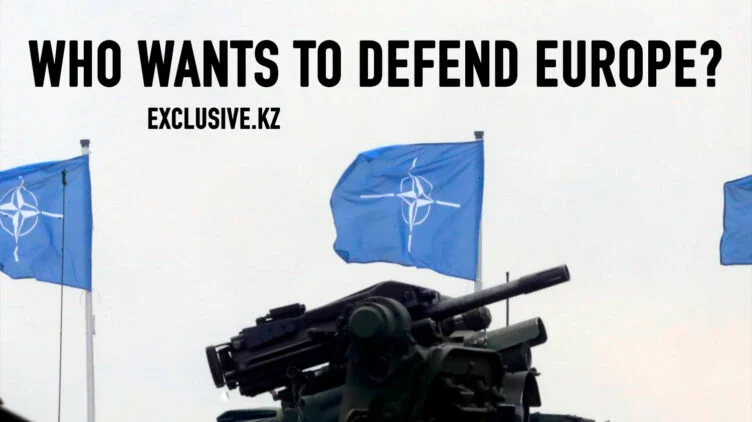European governments are finally shaking off their complacency

Headlines across Europe are increasingly dominated by news of rearmament, war-preparedness manuals, defense bonds, the return of conscription, and tax-free savings programs aimed at funding military spending. At June’s NATO summit in The Hague, all member states – except Spain – pledged to boost defense spending to 5% of GDP. With defense production ramping up across the continent and new security laws in the works, it appears that European governments are finally shaking off their complacency.
But for Europe’s newfound commitment to defense to take hold, leaders must secure broad public support. Long-term resilience requires more than laws, budgets, and missiles; it depends on sustained political and public support for defense priorities, without which today’s measures risk being a short-lived reaction rather than a lasting commitment.
Ukraine is a case in point. Russia has been able to continue its war of aggression partly due to strong domestic support. Despite facing weapons and electricity shortages, Ukraine continues to resist because its people are determined to defend their country. Meanwhile, shifts in public opinion have derailed recent efforts to increase support for Ukraine in the United States, Slovakia, and Poland.
Public backing for foreign, security, and defense policies is no less essential than advanced military hardware. Yet support for European rearmament remains worryingly low. A recent study found that around half of adults surveyed in France, Germany, Italy, Spain, and the United Kingdom expect a world war within the next decade. Across the European Union, however, just 32% of adults say they would take up arms in the event of war. A special Eurobarometer survey highlights an even broader preparedness gap: 58% of respondents reported not feeling ready for disasters, and only 46% would know what to do in an emergency. Moreover, recent elections in Germany, Romania, Poland, and Portugal revealed significant public resistance to increased defense spending and more assertive foreign policy.

As the foreign and defense policies of longtime allies like the US shift seemingly overnight, it is increasingly clear that Europe must strengthen its own capabilities. But manipulated narratives and performative pacifism have distorted public debate, making it harder to build consensus on how to address shared security challenges. Populist leaders exploit these sentiments, offering the illusion of peace without sacrifice. Despite their nationalist and militarist roots, some far-right parties echo the rhetoric of the far left and Cold War-era nuclear disarmament movements in advocating concessions to dictators.
Consequently, many Europeans remain skeptical of an imminent military threat, dismissing expert warnings as alarmist. Although some recognize the danger, it has yet to translate into broad support for a strong and sustained defense effort. Recent polling shows that while most Europeans are in favor of higher defense spending, few are willing to accept trade-offs like welfare cuts or increased public debt.
To build support, political leaders must reframe the debate by focusing on three key priorities. First, defense spending should not be framed as a limited military expense, but as a vital investment in Europe’s future. After all, security is not just about tanks and troops; it means safeguarding the freedoms, stability, and prosperity that underpin Europeans’ way of life. In an age of hybrid threats, from cyberattacks to energy blackmail, defense spending is an investment that protects hospitals from ransomware, keeps homes heated, and ensures that democratic institutions operate without foreign interference.
A credible and cohesive defense posture is also necessary to deter aggression against EU member states. Without a swift and united response to an attack, the bloc’s very foundations – its single market, cohesion funds, agricultural subsidies, and programs like Erasmus – could be at risk. That is why the EU’s deterrence capacity must matter as much to Spain as it does to Estonia or Latvia.
Second, there is a strong case for linking defense spending to infrastructure development. Building roads, bridges, and electricity interconnectors could enhance both security and quality of life across the continent. But the EU must accelerate these efforts: another decade of delay and dysfunction could prove disastrous.
Europe’s defense must include resilient energy systems, secure digital networks, and dependable public services. Cyber defense, for example, is crucial to protecting hospitals from attacks that could jeopardize lives. Likewise, accelerating the green transition will help European countries meet their climate goals and reduce dependence on hostile energy suppliers. April’s Iberian Peninsula blackout exposed the vulnerability of the continent’s power grids, underscoring the need for greater resilience.
Third, increased defense spending is more likely to gain public support if people can see the tangible benefits of rearmament. To this end, France’s public investment bank, BPI, will soon pilot a scheme through which individuals can invest as little as €500 ($587) of their own savings in French defense companies. There are more untapped opportunities for bolder tax-efficient schemes, such as by copying models akin to Italian postal savings bonds (Buoni fruttiferi postali). Such initiatives could give voters a meaningful and profitable stake in a stronger, more secure Europe.
Governments must ensure that the economic benefits of defense and infrastructure investment reach ordinary people by aligning national security with reindustrialization, broad-based prosperity, job creation, and tax incentives. The UK’s recent Strategic Defense Review, for example, references jobs linked to defense upgrades more than a dozen times.
Above all, defending Europe requires responsible governance and rigorous planning for worst-case scenarios, no matter how uncomfortable or improbable they may seem. Such preparation can help avert crises or, at the very least, mitigate their impact. But without robust public support, even the best-laid plans are bound to fall short.
Copyright: Project Syndicate, 2025.





Все комментарии проходят предварительную модерацию редакцией и появляются не сразу.